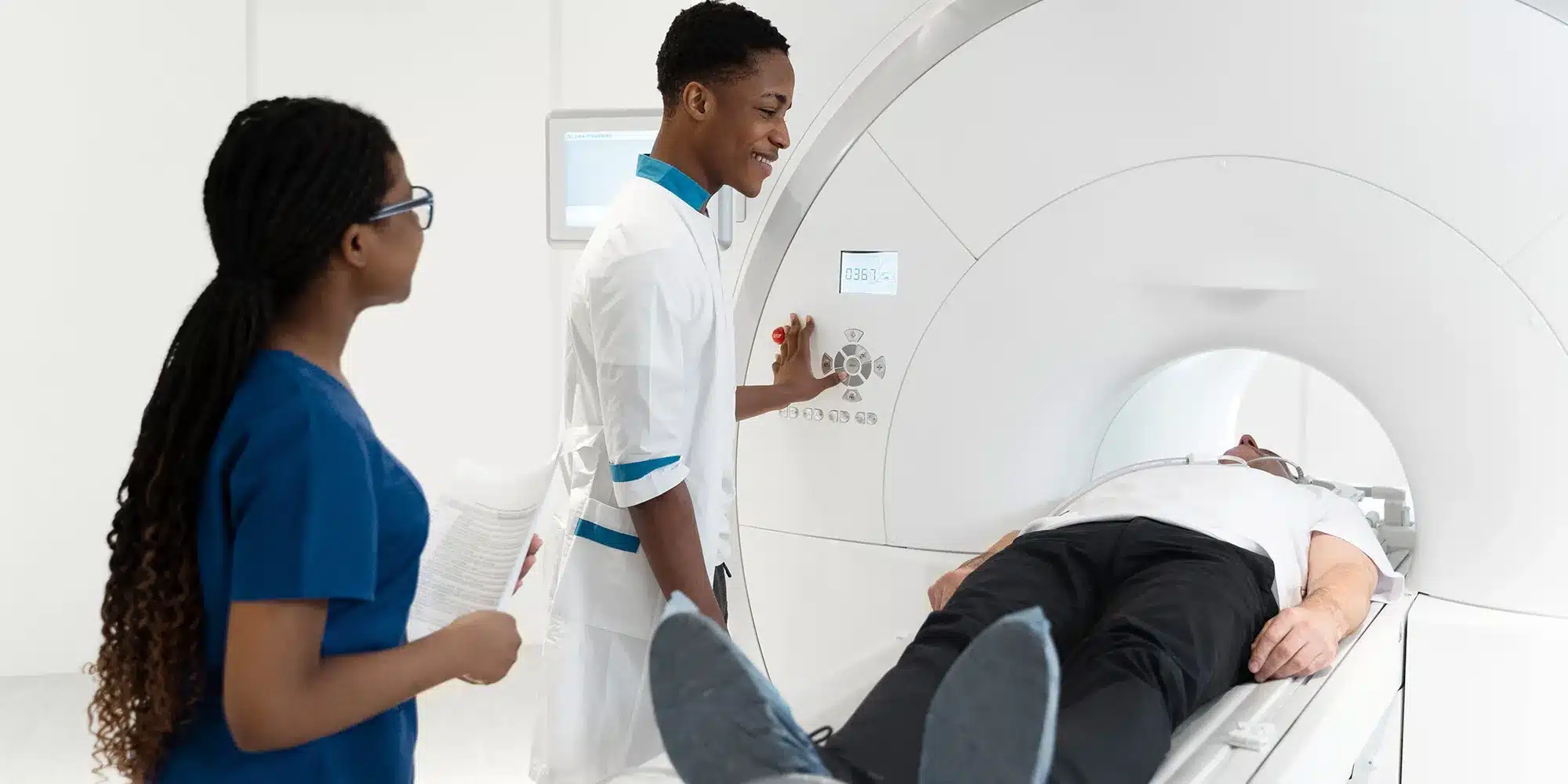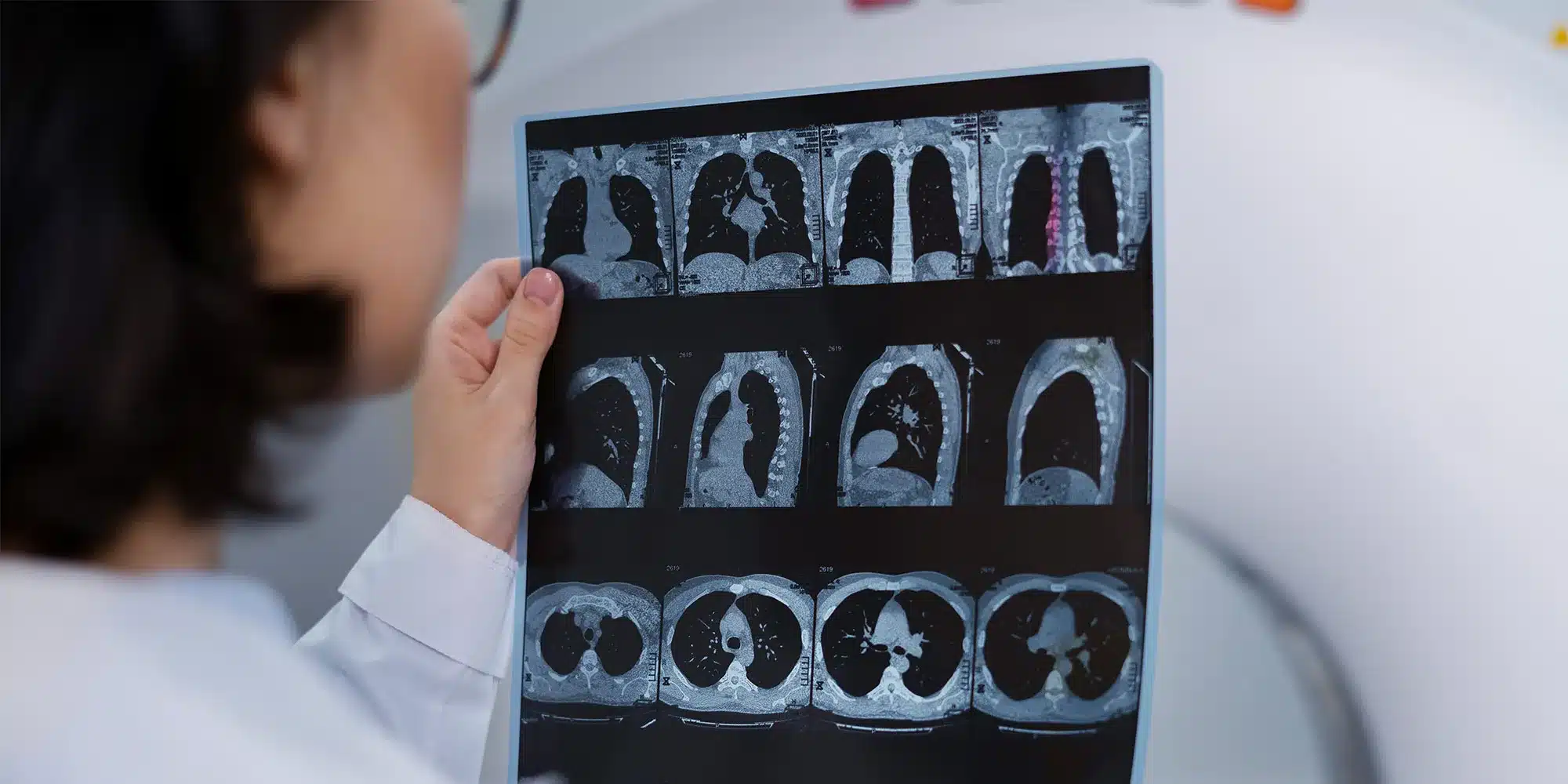Magnetic Resonance Imaging (MRI): Purpose, Procedure, and Costs in the UK
Magnetic Resonance Imaging (MRI) is a procedure in diagnostic that use following waves to create images of organs and tissues in the body :
- Radio waves
- Magnetic fields
What is MRI?
“Radiology is the Eyes of Medicine’’.
Allan Kapilivsky
Magnetic Resonance Imaging provides extensive details that other imaging techniques are unable to create. This method can help diagnose several issues, such as:
- Heart conditions
- Tumours
- Brain injuries
The invention of magnetic resonance imaging has contributed significantly to medical research. And with periodic refinements, it has only got better. It may still have some side effects. But they are not usually a cause for concern.
What is the Purpose of Magnetic Resonance Imaging Scanning?

The purpose includes:
- Diagnostic Evaluation
- Interventional Guidance
- Research and Clinical Studies
Diagnostic Evaluation
These scans help diagnose various medical conditions. They help identify:
- Abnormalities
- Lesions
- Tumours
- Other structural changes in the body.
Interventional Guidance
Surgeons use Magnetic Resonance Imaging in interventional procedures like biopsies and surgeries. They use real-time imaging during the operation.
Research and Clinical Studies
Magnetic Resonance Imaging helps gain a deeper understanding of:
- Human anatomy
- Physiology
- Disease processes
In R v. Turner (2013) case, the defendant was charged with causing grievous bodily harm intentionally. The defence argued that a brain flaw impaired the defendant’s control.
The defence used an MRI scan to show an abnormality in the defendant’s brain. . The MRI results were shown in expert testimony. They argued that the defendant’s mental condition significantly affected his actions.
MRI Scanning Procedure

Before the Scan
The following are a few things you and your doctor may need to consider before an MRI scan:
- MRI scanning doesn’t require sedation beforehand, except for a few cases. Those may include the fear of enclosed areas (claustrophobia), anxiety, or the problem staying still.
- You may eat or drink normally and take all your medicines before the test unless you are receiving an MRI of your gallbladder or other hepatic systems.
- The MRI technician may inject a special dye into your vein before the procedure. This dye consists of a metal called gadolinium that becomes highly prominent during the test. Speak to your doctor if you have kidney disease or receive dialysis.
- The technician may not proceed with the scan if you have any metal in your body. Metallic devices like pacemakers, stents, and metal plates can distort the MRI imaging.
- Speak to your doctor if you regularly get exposed to an environment filled with metal debris. Your eyes may get harmed during the MRI scan if they are contaminated with this debris.
- Remove all metallic wearables, such as watches, jewellery, and hearing aids, before entering the MRI room.
During the Scanning Procedure
The steps involved in an MRI scan include the following:
- The radiographer will ask you to lie on a flatbed that smoothly slides into the MRI machine.
- They will control the MRI machine using a computer in a different room. You will be able to communicate with the controller through the intercom.
- They may place a special coil around the body area being scanned. These coils are essentially radio frequency ‘antennae’ used to improve the picture quality.
- The MRI machine may make tapping sounds. You can request earplugs to lessen the noise.
- The radiographer may ask you to hold your breath and remain still at the time of taking pictures. This is to prevent image distortion.
- The MRI scan process may last 15 to 90 minutes.
After the MRI Scan
- Once the scan is completed, unless you have been given sedatives, you can leave the diagnostic centre.
- In case of sedatives, you will need a friend or family member to drive you back home.
- The radiologist will then study the scans and discuss them with specialists.
- Once the report is made, get it from the diagnostic centre and show it to your doctor.
MRI Scan Cost In The UK
The scan cost in the UK can vary depending on several factors, such as:
- The body areas being scanned and its size
- The type of scan
- The number of images
- The geographic location of the diagnostic facility
Final Thoughts
An MRI scanning procedure helps identify soft tissue changes that can be a sign of or lead to severe illnesses. It’s an advanced diagnostic procedure that provides an accurate picture of human anatomy. Its detailed images provide valuable insights for effective diagnosis and treatment.
Want to schedule your Magnetic Resonance Imaging scan? Contact Concise Medico today to book a consultation.
Magnetic Resonance Imaging (MRI): Purpose, Procedure, and Costs in the UK
Magnetic Resonance Imaging (MRI) is a procedure in diagnostic that use following waves to create images of organs and tissues in the body :
- Radio waves
- Magnetic fields
What is MRI?
“Radiology is the Eyes of Medicine’’.
Allan Kapilivsky
Magnetic Resonance Imaging provides extensive details that other imaging techniques are unable to create. This method can help diagnose several issues, such as:
- Heart conditions
- Tumours
- Brain injuries
The invention of magnetic resonance imaging has contributed significantly to medical research. And with periodic refinements, it has only got better. It may still have some side effects. But they are not usually a cause for concern.
What is the Purpose of Magnetic Resonance Imaging Scanning?

The purpose includes:
- Diagnostic Evaluation
- Interventional Guidance
- Research and Clinical Studies
Diagnostic Evaluation
These scans help diagnose various medical conditions. They help identify:
- Abnormalities
- Lesions
- Tumours
- Other structural changes in the body.
Interventional Guidance
Surgeons use Magnetic Resonance Imaging in interventional procedures like biopsies and surgeries. They use real-time imaging during the operation.
Research and Clinical Studies
Magnetic Resonance Imaging helps gain a deeper understanding of:
- Human anatomy
- Physiology
- Disease processes
In R v. Turner (2013) case, the defendant was charged with causing grievous bodily harm intentionally. The defence argued that a brain flaw impaired the defendant’s control.
The defence used an MRI scan to show an abnormality in the defendant’s brain. . The MRI results were shown in expert testimony. They argued that the defendant’s mental condition significantly affected his actions.
MRI Scanning Procedure

Before the Scan
The following are a few things you and your doctor may need to consider before an MRI scan:
- MRI scanning doesn’t require sedation beforehand, except for a few cases. Those may include the fear of enclosed areas (claustrophobia), anxiety, or the problem staying still.
- You may eat or drink normally and take all your medicines before the test unless you are receiving an MRI of your gallbladder or other hepatic systems.
- The MRI technician may inject a special dye into your vein before the procedure. This dye consists of a metal called gadolinium that becomes highly prominent during the test. Speak to your doctor if you have kidney disease or receive dialysis.
- The technician may not proceed with the scan if you have any metal in your body. Metallic devices like pacemakers, stents, and metal plates can distort the MRI imaging.
- Speak to your doctor if you regularly get exposed to an environment filled with metal debris. Your eyes may get harmed during the MRI scan if they are contaminated with this debris.
- Remove all metallic wearables, such as watches, jewellery, and hearing aids, before entering the MRI room.
During the Scanning Procedure
The steps involved in an MRI scan include the following:
- The radiographer will ask you to lie on a flatbed that smoothly slides into the MRI machine.
- They will control the MRI machine using a computer in a different room. You will be able to communicate with the controller through the intercom.
- They may place a special coil around the body area being scanned. These coils are essentially radio frequency ‘antennae’ used to improve the picture quality.
- The MRI machine may make tapping sounds. You can request earplugs to lessen the noise.
- The radiographer may ask you to hold your breath and remain still at the time of taking pictures. This is to prevent image distortion.
- The MRI scan process may last 15 to 90 minutes.
After the MRI Scan
- Once the scan is completed, unless you have been given sedatives, you can leave the diagnostic centre.
- In case of sedatives, you will need a friend or family member to drive you back home.
- The radiologist will then study the scans and discuss them with specialists.
- Once the report is made, get it from the diagnostic centre and show it to your doctor.
MRI Scan Cost In The UK
The scan cost in the UK can vary depending on several factors, such as:
- The body areas being scanned and its size
- The type of scan
- The number of images
- The geographic location of the diagnostic facility
Final Thoughts
An MRI scanning procedure helps identify soft tissue changes that can be a sign of or lead to severe illnesses. It’s an advanced diagnostic procedure that provides an accurate picture of human anatomy. Its detailed images provide valuable insights for effective diagnosis and treatment.
Want to schedule your Magnetic Resonance Imaging scan? Contact Concise Medico today to book a consultation.




